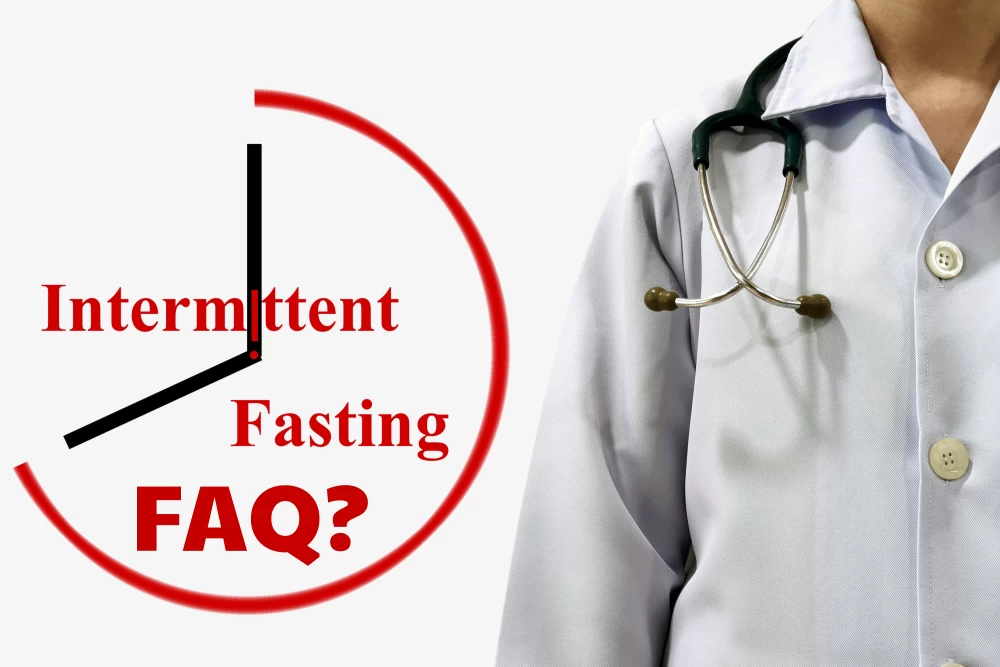
- 22nd April 2023
Table of Contents
Benefits of Intermittent Fasting
Intermittent fasting is a method of dieting in which one goes without food for extended stretches of time. Due to its many advantages, this method has gained popularity among professionals with demanding schedules. Weight loss is a major advantage of intermittent fasting. Intermittent fasting is an effective way to lose weight without starvation or adhering to any particular diet. Improved cognitive performance is yet another perk of intermittent fasting. This type of diet has been shown to improve cognitive abilities like memory and learning by increasing levels of a substance called brain-derived neurotrophic factor (BDNF). Chronic diseases such as arthritis, diabetes, and heart disease can be avoided in part because of the protective effect of Intermittent Fasting on inflammation. In conclusion, Intermittent Fasting is an ideal dietary approach for busy professionals who want to improve their physical and mental health while effectively managing their hectic schedules due to its many health benefits.
Types of Intermittent Fasting
Among the many variations of intermittent fasting, the 5:2 diet, alternate-day fasting, and time-restricted eating are the most well-known. In time-restricted eating, you only eat during a certain time window each day. This strategy entails limiting your daily eating window to just eight hours, say, between noon and 8 p.m. With alternate-day fasting, you consume a normal amount of food one day, and then fast for 24 hours the next. Another form of intermittent fasting is the 5:2 diet, in which calories are restricted for two days of the week but not consecutively. During the two calorie-restricted days, women should aim for 500–600 calories and men for 600–800 calories. It's important to keep in mind that not everyone will experience the same results from the same intermittent fasting method. Therefore, you may need to experiment before you find what works best for you. If you have preexisting health conditions, it is especially important to talk to a doctor before beginning a new diet or exercise plan.
Setting Goals and Planning Ahead
In order to achieve any kind of lasting success with intermittent fasting, goal setting and advanced preparation are essential. Know why you want to try this diet and what you hope to achieve from it, such as weight loss or better health indicators. After deciding what you want to accomplish, making a schedule for your fasting and eating times can help you stay on track with your plan. Preparing meals and snacks in advance can help you stick to your plan by having healthy options available when hunger strikes. Goal-setting and long-term preparation can benefit from an atmosphere of encouragement. Find a group of people who will support your decision to try intermittent fasting, or join one online. This will allow you to learn from others' experiences and gain motivation.

In conclusion, achieving success with intermittent fasting requires setting objectives and making preparations. If you have a specific plan and a strong support system in place, this way of eating can make it easier than ever to reach your health goals.
Eating Healthy During Fast Periods
If you're a busy professional looking to lose weight and improve your health, intermittent fasting may be the way to go. Maintaining a healthy diet during fasts, however, can be difficult. Planning your meals in advance is a great way to ensure you eat well while intermittent fasting. Fruits, vegetables, lean proteins, and whole grains should all be easily accessible during your eating window. You can help yourself feel fuller for longer by focusing on nutrient-dense foods during fasting periods. Add these high-fiber and protein foods to your salads and smoothies for added nutrition. Examples include lentils, beans, nuts/seeds, oats, chia seeds, etc. One last thing: remember to drink plenty of water. If you drink water regularly throughout the day, you won't get as hungry in between meals. Sugary drinks, such as soda and sports drinks, can cause a rapid increase in blood sugar, which in turn can trigger cravings. If drinking plain water becomes monotonous, try switching to herbal teas or water with fruit or vegetable flavours added.

Staying Hydrated and Managing Stress
It's important for everyone to drink plenty of water, but those who practise intermittent fasting have an even greater need to do so. Since you won't be able to replenish your fluid stores while fasting, make sure to drink lots of water and other fluids during your eating window. Stress levels can rise due to the physical and emotional symptoms of dehydration, such as headaches, fatigue, and irritability. Keeping yourself hydrated aids in maintaining healthy bodily functions and lessens the likelihood of unpleasant side effects. Stress management is also crucial to the success of intermittent fasting. Cortisol, a hormone released in response to stress, has been linked to both weight gain and increased hunger cravings, both of which can sabotage your efforts. The key to keeping a positive outlook and sticking to your fasting plan is finding ways to manage stress throughout the day. Taking regular breaks from work tasks, engaging in physical activity like walking or jogging, and practising deep breathing exercises are all proven methods for reducing stress. In conclusion, when intermittent fasting as a busy professional, it is especially important to stay hydrated and manage stress. Including these practises into your daily life will help you feel healthier and more successful with this diet plan. Self-care practises, such as drinking more water throughout the day or finding ways to unwind despite a busy schedule, can help you get the most out of intermittent fasting as a lifestyle choice for long-term health and wellness.
Creating a Support System
For people who have demanding careers, families, and social lives, intermittent fasting can be an arduous ordeal. Building a strong network of allies is crucial to achieving any goal. Find others in your workplace or community who are also making this transition. Get in touch with them through online communities or set up in-person get-togethers to inspire and be inspired. Hiring an accountability partner or coach is another way to establish a solid foundation of support. Having someone to hold you accountable and encourage you along the way to your intermittent fasting goals is invaluable. They may also offer helpful advice and suggestions that improve your journey. Finally, keep in mind that self-motivation is crucial to building a successful support system for intermittent fasting. Use apps or journals to record your progress, and don't forget to reward yourself for even the smallest victories along the way. You can set yourself up for long-term success in your intermittent fasting journey as a busy professional by following these guidelines.














